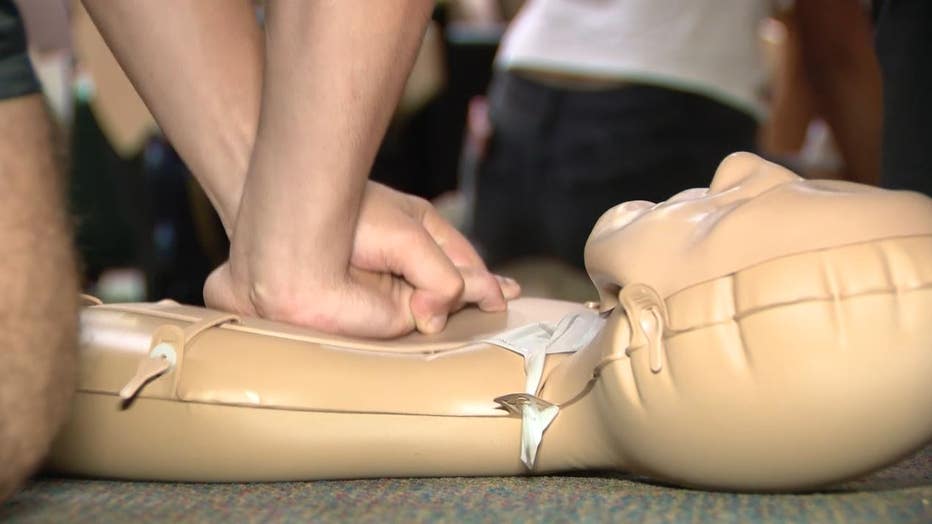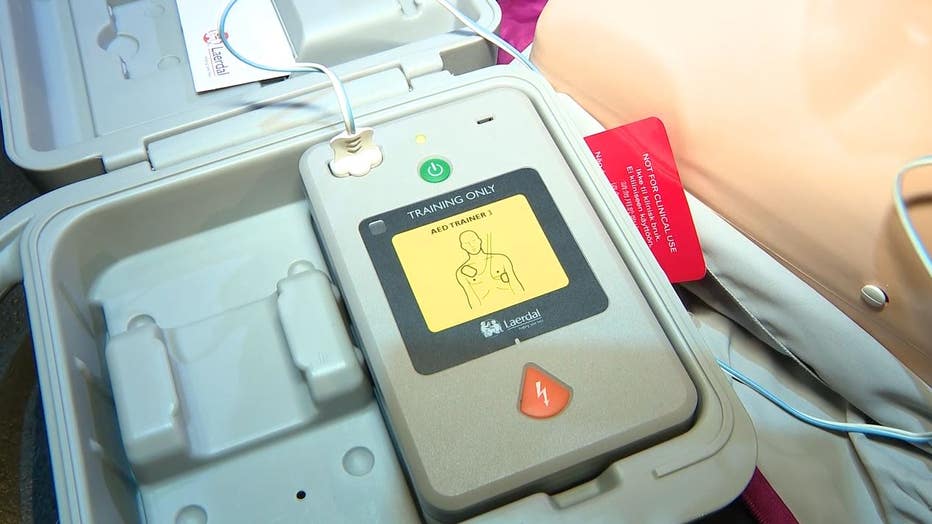Florida high school students learn CPR: 'really going to make a difference'

Florida high school students learn CPR
At Winter Springs High School in Seminole County, paramedics were there to show students how to properly provide CPR when someone is unresponsive and does not have a pulse. It was last week when a girl's basketball coach at St. Cloud Middle School collapsed on the court during the game.
It was last week when a girl's basketball coach at St. Cloud Middle School collapsed on the court during the game. Bodycam video from a St. Cloud police officer showed the moment a school resource officer rushed in with an automated external defibrillator (AED) and began providing CPR until emergency crews arrived.
It's a life-or-death moment where seconds literally matter.
At Winter Springs High School in Seminole County, paramedics were there to show students how to properly provide CPR when someone is unresponsive and does not have a pulse.
"With these kids, they’re out there doing sports, baseball, football, or track. If one of their friends goes into cardiac arrest they can be there to immediately start CPR and that’s really going to make a difference," said Armando Ramirez, a paramedic with Seminole County Fire Department.

Statistics say a high school athlete goes into sudden cardiac arrest nationwide every three or four days, which is why a new law seeks to require high school students learn CPR and how to properly use an AED before graduating.
So, what should you do if someone is unresponsive and doesn't have a pulse?
"Check for responsiveness. Make sure they are not responding. When you start CPR in your head - Uh-uh-uh-uh ‘staying alive, staying alive,’" said Ramirez, referring to matching the best compressions to the beat of the Bee Gees' song, Stayin' Alive.
If an AED is available, the pads will monitor a person's heart and instruct when a shock is necessary. But, chest compressions need to continue.

"Honestly, I think it was a little physically challenging – a lot of up and down – it does get you tired," said one student.
"You really could only have two minutes or less than that – so it's really important you start in an attempt to save his life," said Antonio Guerricagoitia, a student at Winter Springs High School.
Ramirez warned students that they may hear cracking, which could be someone's ribs breaking during CPR. "People's ribs are going to break. Just keep going," he said.
Officials said performing hands-only CPR doubles a person's odds of surviving, which is why seconds – and minutes – matter.

